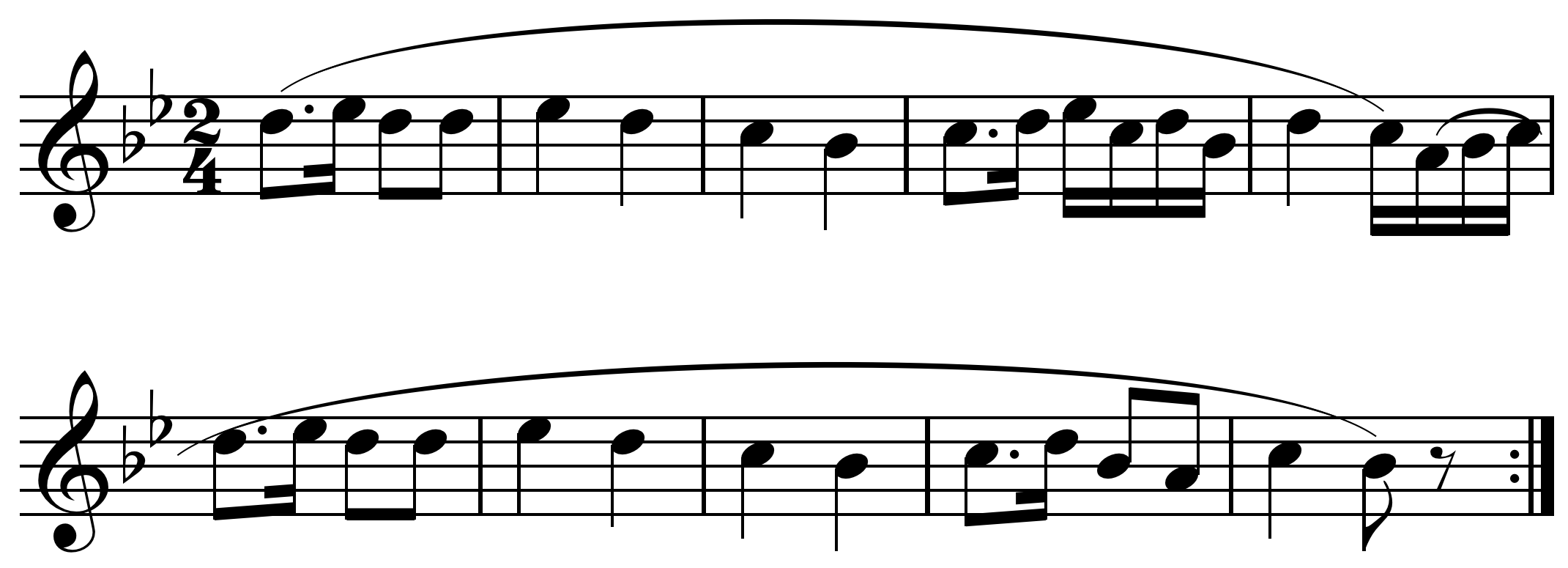
Phrase (music)
In music theory, a phrase (Greek: φράση) is a unit of musical meter that has a complete musical sense of its own,[5] built from figures, motifs, and cells, and combining to form melodies, periods and larger sections.[6]
For phrasing as expressive music, see Musical phrasing.
Terms such as sentence and verse have been adopted into the vocabulary of music from linguistic syntax.[8] Though the analogy between the musical and the linguistic phrase is often made, still the term "is one of the most ambiguous in music....there is no consistency in applying these terms nor can there be...only with melodies of a very simple type, especially those of some dances, can the terms be used with some consistency."[9]
John D. White defines a phrase as "the smallest musical unit that conveys a more or less complete musical thought. Phrases vary in length and are terminated at a point of full or partial repose, which is called a cadence."[10] Edward Cone analyses the "typical musical phrase" as consisting of an "initial downbeat, a period of motion, and a point of arrival marked by a cadential downbeat".[11] Charles Burkhart defines a phrase as "Any group of measures (including a group of one, or possibly even a fraction of one) that has some degree of structural completeness. What counts is the sense of completeness we hear in the pitches not the notation on the page. To be complete such a group must have an ending of some kind … . Phrases are delineated by the tonal functions of pitch. They are not created by slur or by legato performance ... . A phrase is not pitches only but also has a rhythmic dimension, and further, each phrase in a work contributes to that work's large rhythmic organization."[12]
Sources